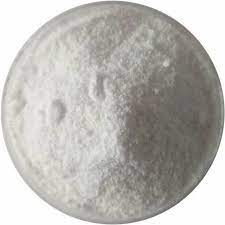Description
Clorazepate is a medication used primarily to treat anxiety, alcohol withdrawal symptoms, and seizure disorders. It belongs to a class of drugs called benzodiazepines, which work by affecting the central nervous system to produce a calming effect. While effective, clorazepate can cause various side effects, some of which can be serious.
Common Side Effects:
- Drowsiness or Sedation: This is one of the most common side effects and can impair daily activities, such as driving or operating machinery.
- Dizziness or Lightheadedness: Especially when standing up quickly, clorazepate can cause a feeling of dizziness due to its sedative effects.
- Fatigue or Weakness: Many users report feeling unusually tired or weak while taking this medication.
- Memory Impairment or Confusion: Short-term memory problems or confusion can occur, particularly at higher doses.
- Coordination Problems: Difficulty with balance or motor coordination may occur, increasing the risk of falls, especially in older adults.
- Blurred Vision: Some users may experience visual disturbances.
- Dry Mouth: A common side effect of many benzodiazepines, including clorazepate.
Less Common, but Serious Side Effects:
- Respiratory Depression: Clorazepate can slow breathing, especially when taken with other central nervous system depressants (like alcohol or opioids). This can be life-threatening.
- Severe Drowsiness or Coma: In rare cases, clorazepate can cause extreme sedation or coma, particularly with overdose or interactions with other medications.
- Paradoxical Reactions: Some people may experience unusual reactions such as agitation, aggression, irritability, or violent behavior.
- Dependence and Withdrawal: Benzodiazepines like clorazepate can cause physical dependence, leading to withdrawal symptoms if discontinued abruptly.
- Liver Damage: Although rare, clorazepate can affect liver function, causing jaundice or other signs of liver damage.
- Memory Problems or Cognitive Impairment: Prolonged use can lead to long-term cognitive issues, especially in older adults.
Allergic Reactions:
Some people may experience allergic reactions such as:
- Rash
- Itching or swelling (especially in the face/tongue/throat)
- Severe dizziness or trouble breathing
Considerations and Warnings:
- Addiction Risk: Clorazepate carries a risk of misuse and addiction, especially when taken for long periods or at high doses.
- Pregnancy and Breastfeeding: Clorazepate is generally not recommended during pregnancy, as it may harm the fetus, and it can pass into breast milk.
- Drug Interactions: Clorazepate can interact with other medications, especially other central nervous system depressants (such as alcohol, opioids, and other benzodiazepines), leading to increased sedation or respiratory issues.
What to Do if You Experience Side Effects:
If you experience severe or life-threatening side effects, like difficulty breathing, confusion, or extreme drowsiness, seek immediate medical attention. For milder side effects like dizziness or fatigue, it’s important to talk to your healthcare provider to adjust the dosage or explore alternative treatments.
As always, clorazepate should be used under the supervision of a healthcare provider to monitor for side effects and ensure safe use, especially when used long-term.









